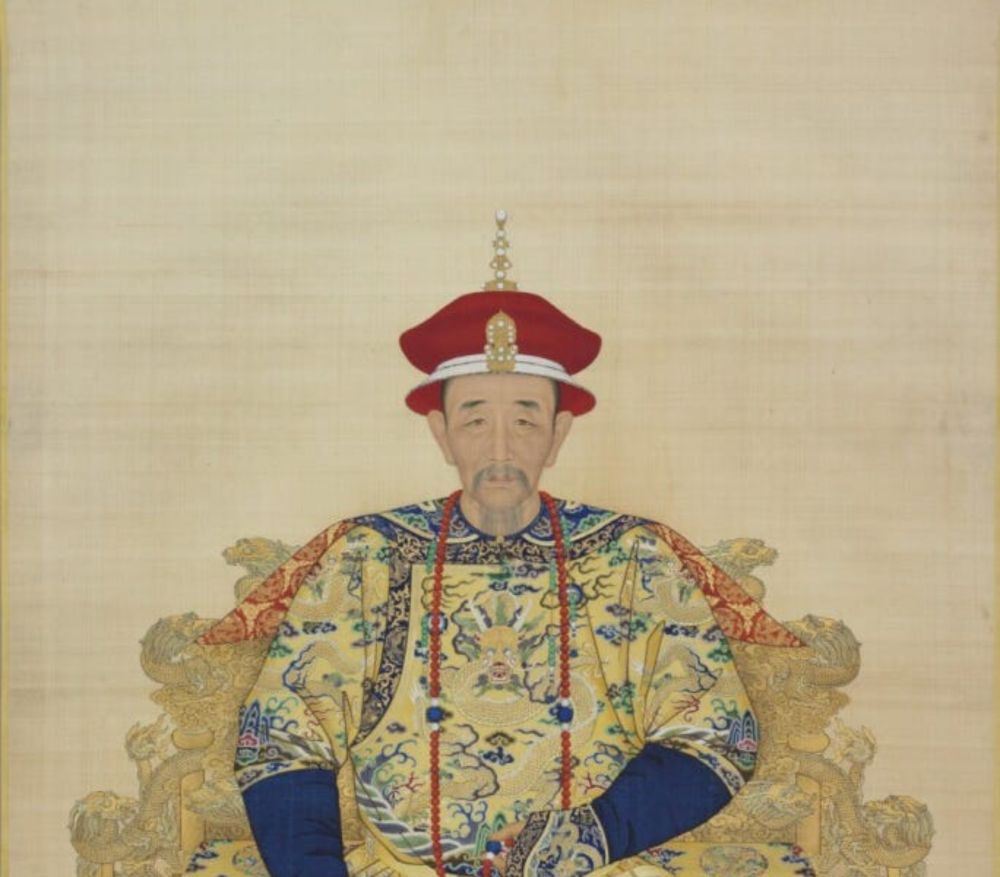Thank you for this great review @raulaldaz.bsky.social ! If after reading this great review anyone is interested in the book (for yourselves or your libraries) feel free to use this discount voucher valid until Friday
28.10.2025 10:23 — 👍 4 🔁 1 💬 0 📌 0
Success could enhance legitimacy for a state-building coalition, strengthening a coercive and/or redistributive state. Failure could weaken the state (and democracy?).
The book serves IR, state and mixed-method scholars. Read it!
Here is the review: (7/7) www.researchgate.net/publication/...
27.10.2025 18:24 — 👍 0 🔁 0 💬 0 📌 0
Schenoni's argument provides lens to see one of the region's most pressing challenges: security.
From left to right, voters demand more state to fight organized crime. Whether through 'mano dura' and/or redistribution (coercion and/or public goods). (6/7)
27.10.2025 18:24 — 👍 0 🔁 0 💬 1 📌 0
The argument and findings of the book could be better understood if read with other recent literature. #DanielBaquero and I recently wrote a review, here is a thread:
bsky.app/profile/raul...
(5/7)
27.10.2025 18:24 — 👍 0 🔁 0 💬 1 📌 0
First. Expands the bellicist theory and tests it in difficult cases (Latin America). The book disputes established explanations for state capacity variation.
Second. The book provides an explanation for the revearsal of economic development and state capacity (late 19th C) within the region. (4/7)
27.10.2025 18:24 — 👍 0 🔁 0 💬 1 📌 0
2. Empirics. The focus on outcomes and mechanisms leads to a mixed-method strategy. The book presents fresh evidence using fQCA, diff-in-diffs, synthetic controls, and within-case analysis.
I think the book makes at least two major contributions (3/7)
27.10.2025 18:24 — 👍 2 🔁 0 💬 1 📌 0
It is theoretically and empirically strong.
1. Theory. The argument expands and ellaborates the classical bellicist theory. It provides expectations of the war-sate link pre and post-war, and mechanisms (depdendent on victory or defeat). In short, it derives several theoretical implications. (2/7)
27.10.2025 18:24 — 👍 0 🔁 0 💬 1 📌 0

Latin American Policy just published the review that I made of @llschenoni.bsky.social's outstanding book Brinking War Back In: Victory, Defeat, and the State in Nineteenth‐Century Latin America.
Here is a thread of the review.
The book tests the war-state capacity link in the region. (1/7)
27.10.2025 18:24 — 👍 1 🔁 0 💬 1 📌 1
Mokyr's work could not have been done today in most economics departments, but the irony is that his work would not fit in history departments today, either. Methodologically he seems more 'history' than 'economics' to economists, but the content and reasoning are too 'economics' for most historians
13.10.2025 13:55 — 👍 69 🔁 18 💬 6 📌 1
IR, Comparative, Methodology.
07.10.2025 14:22 — 👍 9 🔁 1 💬 0 📌 0
Beyond Colonialism: The Long Shadow of War in Latin America’s Development
Capable states that enforce the rule of law, secure property rights, and provide public goods are prerequisites for development, but where do they originate?
If we set aside ad-hoc explanations, two forces stand out in shaping global development: colonial institutions and war—even if the former fails to explain Europe itself. Latin America has long tilted the debate away from the latter, but what if the real driver was war here as well?👇
29.09.2025 14:29 — 👍 3 🔁 2 💬 0 📌 0

Daniel Baquero has organized a neat panel on “Reform and Development from Historical Perspectives”
⏰ 8 am tomorrow (Saturday)
📍 East 3
Projects by Daniel, Steve Monroe, me, Yajie Wang, @charasz.bsky.social + @kkrakows.bsky.social. Discussion by @lisablaydes.bsky.social + @ricarthuguet.bsky.social
12.09.2025 15:39 — 👍 7 🔁 2 💬 0 📌 1
Also, there is avocado soup.
26.08.2025 14:03 — 👍 1 🔁 0 💬 0 📌 0
New political science grad students, a piece of unsolicited advice:
Take the full formal theory sequence; if your program doesn't offer it, go to the econ department (that's what I did). Formal logic is also a great option!
Why? You never know what will happen during grad school. 1/8
19.08.2025 11:57 — 👍 18 🔁 3 💬 2 📌 3
Thank you for taking the time to write the post! Finding a voice always seemed abstract, almost esoteric. Your thoughts help writers see voice as a more concrete element. At least that was my take.
17.07.2025 14:01 — 👍 1 🔁 0 💬 0 📌 0
Pure gold!
15.07.2025 16:42 — 👍 2 🔁 1 💬 1 📌 0

Using time series graphs to make causal claims be like
14.07.2025 12:12 — 👍 854 🔁 159 💬 11 📌 7
I'll write a proper review hopefully ready in the next few weeks. I'll further ellaborate more these ideas. But I'll also try to place the book in a larger discussion as well. But don't wait for the review to read it. (4/4)
04.07.2025 21:59 — 👍 0 🔁 0 💬 0 📌 0
From 2) above, you'll expect a mixed-method research design. It includes cross-section strategies to explain variance across cases, and a focus on specific cases via synthetic controls, and within-case analysis. Cool! (3/4)
04.07.2025 21:59 — 👍 0 🔁 0 💬 1 📌 0
Theoretically, the book extends the bellicist theory in two ways.
1) Going back to key insights from Weber and Hintz. 2) Developing these insights into empirical implications pre and post-war. The implications cover both outcomes and mechanisms. (2/4)
04.07.2025 21:59 — 👍 0 🔁 0 💬 1 📌 0

Ok, so I finally finished reading this book by
@llschenoni.bsky.social. If your are into states and development (in and beyond Latin America), you have to read it!
The book is theoretically ambitious and has a clever and brilliant research design. (1/4)
04.07.2025 21:59 — 👍 3 🔁 2 💬 1 📌 0

📢 ¡Convocatoria abierta!
Dossier: "Estudios de política subnacional comparada en América Latina: el aporte del territorio a la construcción de teoría"
🗓️ Cierre: 16/06/2025
🔗 Info completa: revista.saap.org.ar/index.php/re...
#RevistaSAAP #REPSA #CienciaPolítica #DossierAcadémico
11.04.2025 14:22 — 👍 4 🔁 3 💬 1 📌 2

Are you doing research in contexts of conflict, insecurity and development? Are you using participatory and creative research methods?
Apply now for our one-day workshop on 26 September, where we will discuss the benefits, practical and ethical challenges in using participatory methodologies.
27.05.2025 12:51 — 👍 4 🔁 5 💬 1 📌 0

The rise and reversal of bureaucratic capacity: lessons from Chinese history
In a previous post, I discussed ways in which recent historical political economy research has advanced the study of state capacity.
New Broadstreet post by @pavisuri.bsky.social, who continues her series on state capacity. Today's post is on what we can learn about the origins and reversal of bureaucratic capacity in China & why state-building in China confounds scholars of Europe: www.broadstreet.blog/p/the-rise-a...
19.05.2025 11:30 — 👍 9 🔁 5 💬 0 📌 0
![This paper investigates the individual-level economic impacts of Marxist-Leninist indoctrination. We examine the long-run effects of a rogue educational experiment that, between 1973 and 1975, exposed two cohorts of fifth graders in one Finnish municipality to a history and social studies curriculum influenced by Soviet ideas. The experiment aimed to study the formation of a ``functioning [socialist] worldview.'' Students in other cohorts and municipalities followed the standard curriculum. Using comprehensive register data and a difference-in-differences approach, we show that exposed students earned significantly less in adulthood than their non-exposed peers. This gap is partly explained by reduced labor supply and a shift toward more left-leaning, lower-paying occupations. We find no substantial effects on educational attainment, cognitive ability, or personality traits related to achievement striving. These findings highlight the long-lasting economic consequences of early exposure to ideological content in the classroom.](https://cdn.bsky.app/img/feed_thumbnail/plain/did:plc:iw4zik7u5zligtxo5zkry7ie/bafkreia3fludtx33qqjgyvqy4o72637jqj5xuqlpuds23fr2irlggcxrvi@jpeg)
This paper investigates the individual-level economic impacts of Marxist-Leninist indoctrination. We examine the long-run effects of a rogue educational experiment that, between 1973 and 1975, exposed two cohorts of fifth graders in one Finnish municipality to a history and social studies curriculum influenced by Soviet ideas. The experiment aimed to study the formation of a ``functioning [socialist] worldview.'' Students in other cohorts and municipalities followed the standard curriculum. Using comprehensive register data and a difference-in-differences approach, we show that exposed students earned significantly less in adulthood than their non-exposed peers. This gap is partly explained by reduced labor supply and a shift toward more left-leaning, lower-paying occupations. We find no substantial effects on educational attainment, cognitive ability, or personality traits related to achievement striving. These findings highlight the long-lasting economic consequences of early exposure to ideological content in the classroom.
🎓 New working paper: "Communism in the Classroom: Long-Run Effects of an Experiment" (with Matti Mitrunen)
30.04.2025 14:22 — 👍 19 🔁 12 💬 1 📌 2

graphic that reads 'we're hiring: LSE Fellow in Advanced Quantitative Methods. Applications close: 27 April 2025. For more information and to apply, please visit www.jobs.lse.ac.uk'
We're hiring an LSE Fellow in Advanced Quantitative Methods❗
The successful candidate will contribute to the Department’s teaching activities through seminar teaching, methods surgeries, and dissertation/capstone supervision.
For more info and to apply➡️ jobs.lse.ac.uk/Vacancies/W/...
01.04.2025 10:00 — 👍 5 🔁 11 💬 0 📌 1
🚨Call for papers!
We will be hosting this great workshop next autumn, organized by @clpennec.bsky.social, @nicolasajz.bsky.social and our own Cevat Aksoy.
Submit your best political economy work!
16.04.2025 18:42 — 👍 12 🔁 10 💬 0 📌 0
PhD Candidate in Economics at Universitat de Barcelona (UB).
Political Economy / Environmental Economics / Public Economics
Climate Change - Populism - Polarization - Identity - Inequality
https://sites.google.com/view/danielfavredenoguera
Political scientist 🇫🇷🇪🇨🇬🇵
PhD (c) Université de Toulouse 2 | M.A @flacsoecuador.bsky.social
Professor of International Politics
Author of global health books, producer of BAFTA-nominated film, lover of books, Corrie, Bruce Sproodlesteen, & (once upon a time) house music all night long
Chichele Professor of Economic History, All Souls College, Oxford
https://sheilaghogilvie.com/
ALACIP es una organización científica internacional sin fines de lucro, integrada por académicos, investigadores y profesionales, destinada a promover el desarrollo de los estudios de Ciencia Política en el continente
Post-Doctoral Fellow
Center for Inter-American Policy and Research
Tulane University
Assistant Professor in Economics at King's College London. Political economy with behavioral insights, and behavioral economics without experiments. Previously at Yale School of Management.
https://boukekleinteeselink.com/
Associate Professor of Economics, University of Wisconsin-Milwaukee. Energy, Innovation, Growth, Environment, Patents. Basque nomad.
Sección de Estudios de Instituciones Políticas de LASA (https://sections.lasaweb.org/sections/political-institutions/)
States & Institutions of Governance in Latin America
Multilingual database of LatAm legal and political institutions.
Based at Georgetown University's Center for Latin America Studies
https://www.sigladata.org/
Licenciada en Matemáticas, Doctora en Economía. Catedrática de la Universidad de Alicante ( @DepartamentoFAE ). La Ciencia es mi motor.
https://cvnet.cpd.ua.es/curriculum-breve/es/bevia-baeza-carmen/55994
El Departamento de Fundamentos de Análisis Económico de la
@UA_Universidad es un centro orientado a la investigación en Economía.
Political scientist | Comparative political institutions | Latin America | Researcher at @giga-hamburg.de | Co-editor of @jplaeditor.bsky.social | Prof. for democratic institutions at @unierfurt.bsky.social |
I always carry #Argentina in my heart 🫶
I’m a political scientist from Ecuador interested in elections, campaigns, parties, and electoral behavior.
Lead Economist at the World Bank’s Development Research Group
Development Impact blogger
https://sites.google.com/site/decrgdmckenzie/
Research economist at CAF- development bank of Latin America and the Caribbean.
https://sites.google.com/site/ricardoaestradamartinez/
Founder/Lead Editor, Standard Error Research Editors (@standarderror.bsky.social, http://stderr-editors.com; opinions here are mine!)
Ex American Journal Experts/Springer Nature, Chicago Booth, @cepr.org, LSE
Lefty Mama
🇺🇸 > 🇬🇧 > 🇨🇴 > 🇺🇸
📍Chicago & Medellin
Network of renowned European and Latin American research institutions which aims at generating a space for the exchange of knowledge on the subjects of governability, public policy, institutional reform, and development.
www.red-gob.org








![This paper investigates the individual-level economic impacts of Marxist-Leninist indoctrination. We examine the long-run effects of a rogue educational experiment that, between 1973 and 1975, exposed two cohorts of fifth graders in one Finnish municipality to a history and social studies curriculum influenced by Soviet ideas. The experiment aimed to study the formation of a ``functioning [socialist] worldview.'' Students in other cohorts and municipalities followed the standard curriculum. Using comprehensive register data and a difference-in-differences approach, we show that exposed students earned significantly less in adulthood than their non-exposed peers. This gap is partly explained by reduced labor supply and a shift toward more left-leaning, lower-paying occupations. We find no substantial effects on educational attainment, cognitive ability, or personality traits related to achievement striving. These findings highlight the long-lasting economic consequences of early exposure to ideological content in the classroom.](https://cdn.bsky.app/img/feed_thumbnail/plain/did:plc:iw4zik7u5zligtxo5zkry7ie/bafkreia3fludtx33qqjgyvqy4o72637jqj5xuqlpuds23fr2irlggcxrvi@jpeg)




